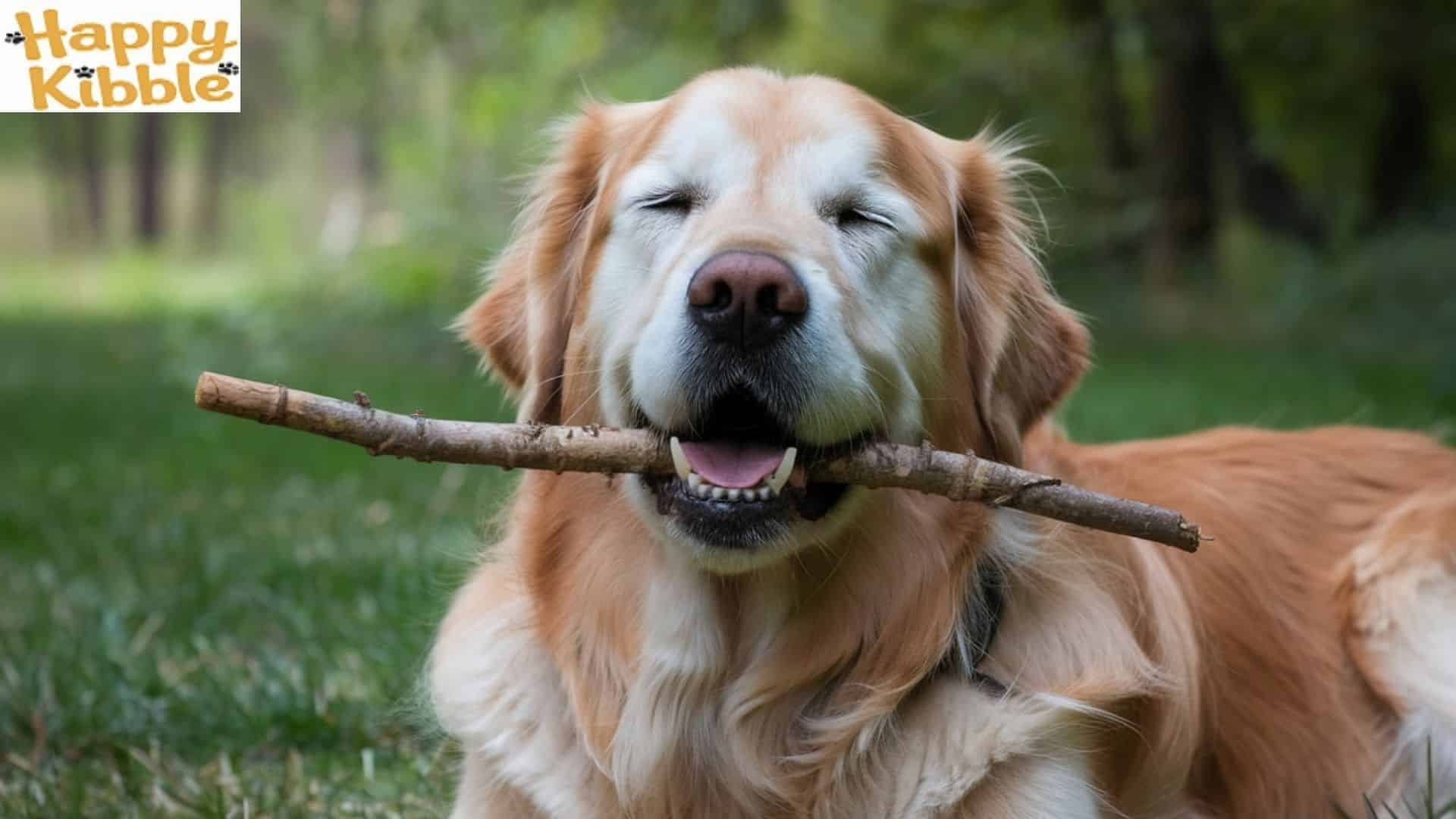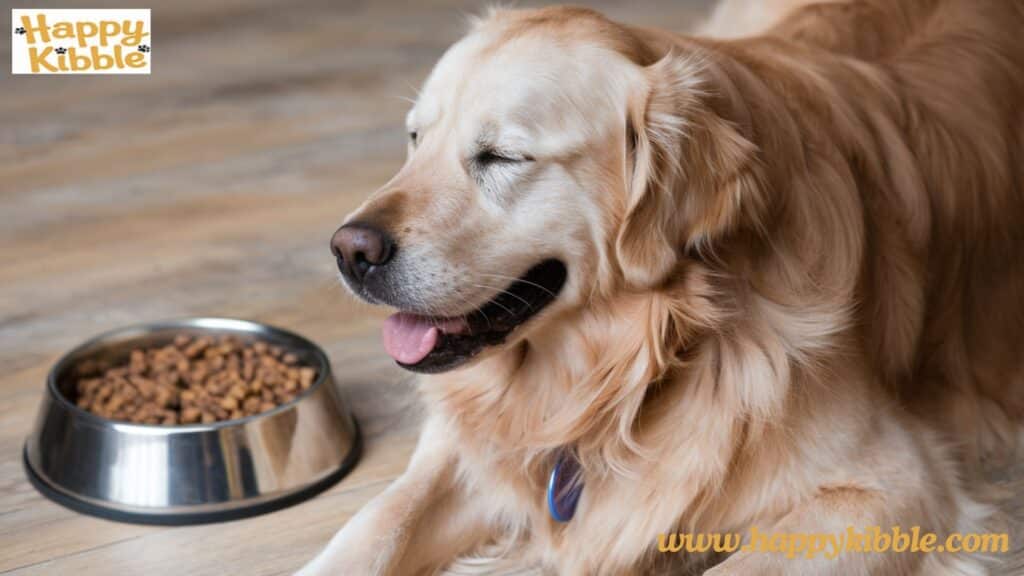“Ever heard your furry friend’s stomach making weird noises, only to find out my dog’s tummy gurgles and won’t eat? You’re not alone. When my dog’s tummy gurgles and won’t eat, it could be a sign of canine digestive issues. Let’s dive into what’s really happening when my dog’s tummy gurgles and won’t eat, and how you can help get them back to feeling their best.”
So, if you are interested to know more about “when your dog’s tummy gurgles and won’t eat“, read this article till the end to resolve your dog’s health issues!
Understanding the Symphony of Your Dog’s Stomach
The Gurgle Decoded

Picture this: You’re lounging on the couch when suddenly, your dog’s stomach starts making noises that would put a hungry T-Rex to shame. What’s going on in there?
Borborygmi – that’s the fancy term for those gurgling sounds. It’s actually pretty normal. Just like us, dogs’ digestive systems are constantly moving food, liquids, and gas around. But when these noises get loud enough for you to hear across the room, it might signal something’s up.
“A dog’s digestive system is like a well-oiled machine. When it’s working right, you hardly notice it. But when something’s off, it can sound like a broken washing machine.” – Dr. Sarah Wooten, DVM
When Gurgling Meets Loss of Appetite

Now, if those tummy rumbles are accompanied by your pup turning away from their favorite chow, it’s time to pay attention. Here’s a quick checklist to gauge the situation:
- [ ] Is the gurgling louder than usual?
- [ ] Has your dog skipped more than one meal?
- [ ] Are there any other symptoms like vomiting or diarrhea?
- [ ] Does your dog seem lethargic or uncomfortable?
If you’re ticking these boxes, we might be dealing with more than just a noisy tummy.
When to Worry: Red Flags for Dog Digestive Issues
Frequency and Volume: The Gurgle-meter
Not all gurgles are created equal. Here’s a handy table to help you assess the situation:
| Gurgle Type | Description | Concern Level |
|---|---|---|
| Occasional quiet gurgles | Normal digestive sounds | Low |
| Frequent quiet gurgles | Might indicate hunger or minor digestive activity | Low to Moderate |
| Occasional loud gurgles | Could be gas or minor irritation | Moderate |
| Frequent loud gurgles | Potential digestive upset or illness | High |
| Constant loud gurgles with no appetite | Requires immediate attention | Very High |
Must Read euthanize dog at home safely and-humanely/
Beyond the Gurgle: Other Symptoms to Watch
While a noisy tummy and food refusal are concerning, keep an eye out for these additional red flags:
- Vomiting or dry heaving
- Diarrhea or constipation
- Lethargy or depression
- Abdominal pain or bloating
- Excessive drooling
- Changes in water consumption
If you spot any of these alongside the gurgling and appetite loss, it’s time to dial up your vet.
The Usual Suspects: Common Causes of Dog Stomach Gurgling and Loss of Appetite

1. The Hunger Games
Sometimes, the simplest explanation is the right one. If your dog’s last meal was a while ago, those gurgles might just be their stomach’s way of saying, “Hey, what’s for dinner?”
Pro Tip: Stick to a regular feeding schedule. Dogs thrive on routine, and it helps keep their digestive system in check.
2. Dietary Indiscretion: When Fido Turns Food Critic
Dogs aren’t exactly known for their discerning palates. From garbage raids to sneaky snacks, dietary indiscretion is a common culprit for tummy troubles.
Case Study: Max the Labrador
Max’s owner came home to find an empty chip bag and a very guilty-looking Lab. Within hours, Max’s stomach was gurgling like a geyser, and he refused his dinner. A day of fasting and some bland food later, Max was back to his old self.
3. Uninvited Guests: Intestinal Parasites

These tiny troublemakers can wreak havoc on your dog’s digestive system. Common culprits include:
- Roundworms
- Hookworms
- Giardia
- Coccidia
Regular deworming and fecal checks are your best defense against these pesky parasites.
4. Inflammatory Bowel Disease (IBD): The Chronic Contender
IBD isn’t just a human problem. Dogs can suffer from this chronic condition too, leading to recurring bouts of gurgling stomachs and appetite loss.
Symptoms of IBD in dogs:
- Chronic vomiting or diarrhea
- Weight loss
- Fatigue
- Poor coat condition
If you suspect IBD, your vet might recommend dietary changes, medication, or further tests to manage the condition.
5. The Blockade: Intestinal Obstructions
Sometimes, the problem isn’t what’s going in, but what’s not coming out. Intestinal obstructions can occur when dogs swallow non-food items or develop tumors.
Warning: If you suspect an obstruction, it’s a medical emergency. Look out for:
- Severe abdominal pain
- Repeated vomiting
- Inability to pass stool
6. The Big Bad: Bloat in Dogs
Bloat, or gastric dilatation-volvulus (GDV), is a life-threatening condition where the stomach fills with gas and twists on itself.
High-risk breeds for bloat:
- Great Danes
- Saint Bernards
- Weimaraners
- German Shepherds
Bloat is a 911 situation. If your dog’s stomach is visibly swollen and they’re trying to vomit without success, get to an emergency vet ASAP.
First Aid for Finicky Stomachs: Home Remedies and Immediate Actions

When your dog’s stomach is doing the rumba and their appetite has taken a vacation, here are some immediate steps you can take:
- Fast Track to Recovery: A 12-24 hour fast can help reset your dog’s digestive system. Always provide fresh water during this time.
- The Bland Leading the Bland: After fasting, introduce a bland diet. Try:
- Boiled chicken (no skin or bones) and white rice
- Lean ground beef and pumpkin puree
- Commercial sensitive stomach dog food
- Probiotic Power: Adding a dog-specific probiotic can help restore balance to the gut microbiome.
- Ice, Ice Baby: Offer ice cubes to lick. It keeps them hydrated without overloading the stomach.
- Small Meals, Big Impact: Once your dog’s appetite returns, feed small, frequent meals rather than large portions.
“Remember, these are short-term solutions. If symptoms persist beyond 24-48 hours, it’s time to bring in the professionals.” – Dr. Jennifer Coates, DVM
When to Wave the White Flag: Seeking Veterinary Help
Sometimes, home remedies just don’t cut it. Here’s when it’s time to call in the cavalry:
- Symptoms persist for more than 48 hours
- There’s blood in vomit or stool
- Your dog shows signs of severe pain or distress
- You suspect they’ve eaten something they shouldn’t have
- There are other concerning symptoms like fever or rapid weight loss
An Ounce of Prevention: Keeping Tummy Troubles at Bay
They say an ounce of prevention is worth a pound of cure. Here’s how to keep your dog’s digestive system purring like a well-oiled machine:
- Quality Control: Feed a high-quality, age-appropriate diet.
- Slow and Steady: Use slow-feeder bowls to prevent gulping and reduce air intake.
- Routine Rocks: Stick to regular feeding times and amounts.
- Parasite Patrol: Keep up with regular deworming and flea/tick prevention.
- Hydration Station: Ensure fresh water is always available.
- Stress Less: Minimize environmental stressors that can affect digestion.
- Toy Story: Provide appropriate chew toys to discourage ingestion of foreign objects.
- Exercise Excellence: Regular exercise helps maintain a healthy digestive system.
The Gut-Brain Connection: Stress and Your Dog’s Digestion

Just like us, dogs can experience stress-related digestive issues. Changes in routine, new environments, or even separation anxiety can lead to tummy troubles.
Signs of stress in dogs:
- Excessive panting or drooling
- Pacing or restlessness
- Changes in body posture (tail tucked, ears back)
- Increased vocalization
- Avoidance behaviors
To help your stress-prone pooch:
- Maintain a consistent routine
- Provide a safe, quiet space
- Consider calming aids like pheromone diffusers or anxiety wraps
- Engage in regular exercise and mental stimulation
The Bottom Line on Belly Rumbles

When your dog’s stomach starts sounding like a dubstep concert and they’re giving their food the cold shoulder, it’s natural to worry. But armed with the knowledge we’ve covered, you’re now better equipped to handle these tummy troubles.
Remember:
- Occasional gurgles are normal
- Loss of appetite for more than a day is cause for concern
- Always err on the side of caution – when in doubt, call your vet
By staying vigilant, responding promptly, and maintaining good preventive care, you can help ensure your furry friend’s digestive system stays in tip-top shape. After all, a happy tummy makes for a happy pup!
learn about petfood happykibble

Explore the “Pet Food” category for the latest trends and expert tips on pet nutrition. Curated by Laim Henry, an experienced writer in the pet food niche, our posts offer valuable insights to keep your furry friends healthy and happy.






